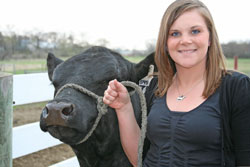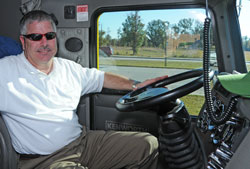
December ZimmNews
 The latest edition of ZimmNews has been delivered to in-boxes everywhere. A lot of you are already on holiday I can tell judging by the “out of office” replies!
The latest edition of ZimmNews has been delivered to in-boxes everywhere. A lot of you are already on holiday I can tell judging by the “out of office” replies!
In case you didn’t get it or just want to look at it online then you can find it here: December ZimmNews
Some highlights include:
I hope you enjoy it and thank you for reading.
Zimfo Bytes
- Trimble announced it has acquired the FastMap and GeoSite software assets from KOREC (www.korecgroup.com). The acquisition will allow Trimble to expand its Mapping and Geographic Information System solutions to provide optimized software and professional services in Europe, Africa and the Middle East.
- Results from replicated strip trials harvested by Iowa Soybean Association On-Farm Network growers show that fall-applied anhydrous ammonia might benefit from proper use of a nitrification inhibitor such as N-Serve.
- Arkion Life Sciences has received US EPA approval to market Avipel Corn Seed Treatment in Minnesota for the 2009 planting season. The Section 18 application filed by the State of Minnesota is effective Dec. 5, 2008 through July 30, 2009.
- Casey Daniel has joined United Phosphorus, Inc., as ag account manager responsible for representing UPI’s broad portfolio of post-patent crop protection products, working with distribution chain customers in New Mexico, Texas and Oklahoma.

A New Face at AgWired
 Thanks for the introduction, Chuck! I’m glad to be a part of AgWired, and I look forward to bringing a unique perspective to new media uses as a cattle rancher, college student and agricultural journalist.
Thanks for the introduction, Chuck! I’m glad to be a part of AgWired, and I look forward to bringing a unique perspective to new media uses as a cattle rancher, college student and agricultural journalist.
Young people are always the go-to generation when it comes to utilizing technology to its fullest potential, and I’m excited to share with you some of my experiences with social networks and how they can benefit agriculture professionals.
Of course, Facebook is an important social network that has quickly grown into a tool for business marketing, important causes and social gatherings. One of my favorite organizations, Faces of Ag uses Facebook to reach people and encourage them to connect with the urban consumer. Through a Facebook “group,” Faces of Ag provides hints for making connections and telling the food production story.
 However, with the holiday season in full swing, utilizing Facebook and other online media outlets is probably the last thing from your mind. Now is the time to reflect on those that are closest to our hearts—our friends and families. Make family time a priority this season. It is truly the season to refresh our minds and renew our spirits for a great 2009 in agriculture. I look forward to joining you in the New Year to provide you with tips and ideas for utilizing the latest tools to launch your goals in agriculture! I found this picture of a rancher that decorates his dairy cow every year for the holidays. Merry Christmas from my heart to yours!
However, with the holiday season in full swing, utilizing Facebook and other online media outlets is probably the last thing from your mind. Now is the time to reflect on those that are closest to our hearts—our friends and families. Make family time a priority this season. It is truly the season to refresh our minds and renew our spirits for a great 2009 in agriculture. I look forward to joining you in the New Year to provide you with tips and ideas for utilizing the latest tools to launch your goals in agriculture! I found this picture of a rancher that decorates his dairy cow every year for the holidays. Merry Christmas from my heart to yours!
Dupont Broadleaf Weed Report
While surfing through the latest Farms.com Highlighter I found a story about a podcasting project they participated in with Dupont called the Broadleaf Weed Report.

Welcome to the Broadleaf Weed Report – an informative series of podcasts covering a range of topics related to weed control in western Canada. The series provides insights into broadleaf weed control and agronomic practices to help western Canadian growers protect their valuable yields. With crop prices at record levels, every incremental gain in yield is more valuable than ever. Agronomic, technical and marketing experts from DuPont Canada speak on a variety of topics including weed shifts, advances in crop protection chemistry, herbicide resistance and emerging weed challenges. All designed to help growers get the most from their weed control programs.
You can subscribe using this link.
Yes Rural Broadband is Important
 The latest issue of Farms.com’s Highlighter Newsletter contains an article titled, “Rural Broadband – An Important Platform.” Now that’s a subject near and dear to my heart. Joe Dales is the author and he makes some good points like, “. . . it can be a strong platform for rural economic growth.”
The latest issue of Farms.com’s Highlighter Newsletter contains an article titled, “Rural Broadband – An Important Platform.” Now that’s a subject near and dear to my heart. Joe Dales is the author and he makes some good points like, “. . . it can be a strong platform for rural economic growth.”
He also says:
To be sure that our Rural constituents maximize the opportunities that are presented by greater internet access, it will also require user computer training, internet training, the development of relevant broadband business applications etc. It can be argued that there is little economic value to society in developing a global leading edge broadband delivery network, if its primary use is to download games or videos for rural children.
I don’t disagree with the need for training although it’s my experience that there are a lot of very web savvy farmers out there. I’m sure many of them are included in the visitors to Farms.com. So what are the “relevant broadband business applications” that are needed? Do you have one that you’d like people to know about? If so, please feel free to comment.
Welcome Amanda Nolz to AgWired
 Welcome Amanda Nolz to the AgWired family. Amanda will be posting regularly on AgWired during her final semester at South Dakota State University. She’s an ag comm major with a higher gpa than I graduated with!
Welcome Amanda Nolz to the AgWired family. Amanda will be posting regularly on AgWired during her final semester at South Dakota State University. She’s an ag comm major with a higher gpa than I graduated with!
I met Amanda when she was a National Beef Ambassador. She’s passionate about her farm and her animals and you can get a sense of that from her blog. In fact, it was her blogging that caught my attention and gave me the idea to ask her to write about farming, life and agricultural communications from a student perspective.
So please welcome Amanda to the AgWired community. You’ll see her posts showing up here regularly, probably starting today.
Alpharma Student Video Contest Winners
 The winning video in the Alpharma Student Video Contest was produced by the students of the University of Wisconsin-Madison. I’ll try to update this post with a video embed once it’s on YouTube.
The winning video in the Alpharma Student Video Contest was produced by the students of the University of Wisconsin-Madison. I’ll try to update this post with a video embed once it’s on YouTube.
Alpharma Inc., Animal Health has announced that students from the University of Wisconsin-Madison are the $5,000 grand prize winner of the 2008 Alpharma Student Video Contest. Second and third place was awarded to students from the University of Florida and the University of Arizona, each receiving $2,000 and $1,000, respectively, for their efforts.
he video contest began earlier this fall as college agriculture students from across the country were asked to compile short video clips related to food production. Students received a $25 gift card for each video accepted, up to 10. More than 150 clips were uploaded to the contest Web site. In the second phase of the contest, students were asked to compile these clips, along with their own footage, to complete a video telling a story about how food is produced. Five videos were submitted to the contest and voted on by participants and the public. More than 7,000 votes were cast by the time voting ended on December 19th.
Video titles and submitting universities are as follows:
· Today’s Agriculture – University of Florida
· Beef: Our Priority – University of Arizona
· Myth or Fact!? – Ohio Northern University
· Antibiotics in the Dairy Industry – University of Tennessee
· OatS – University of Wisconsin-Madison
Trucking On Down The Farm Podcast Highway
 The year is trucking right along and in this week’s program we keep on trucking with ZimmCast #200. To keep with the trucking theme the program has an interview with Ron Lang, John Deere, who is the Drive Green Utility Tractor Show driver. I’m going a regular feature for the project called the Truck Driver’s Diary and just updated it today.
The year is trucking right along and in this week’s program we keep on trucking with ZimmCast #200. To keep with the trucking theme the program has an interview with Ron Lang, John Deere, who is the Drive Green Utility Tractor Show driver. I’m going a regular feature for the project called the Truck Driver’s Diary and just updated it today.
 Ron has a great anecdote about meeting up with a Florida Highway Patrol Trooper who as it turns out just had some questions about John Deere Equipment after seeing Ron’s big old truck roll by.
Ron has a great anecdote about meeting up with a Florida Highway Patrol Trooper who as it turns out just had some questions about John Deere Equipment after seeing Ron’s big old truck roll by.
The program this week ends with music from the Podsafe Music Network. This one is called “Keep On Truckin’ Baby” from John Tropea. I hope you enjoy it and thank you for listening.
You can download and listen to the ZimmCast here:  ZimmCast 200 (16 min MP3)
ZimmCast 200 (16 min MP3)
Or listen to this week’s ZimmCast right now:Interview with Ron Lang - ZimmCast 200
The ZimmCast is the official weekly podcast of AgWired which you can subscribe to using the link in our sidebar. You can also subscribe in iTunes
Happy Holidays
 Eco friendliness is “in” when it comes to Christmas/New Year’s cards. Take this one from KL Energy.
Eco friendliness is “in” when it comes to Christmas/New Year’s cards. Take this one from KL Energy.
In our ongoing efforts to be environmentally responsible, KL Energy Corporation is electronically sending our holiday cards this year (please see attached).
Our hearts grow tender with childhood memories and love of kindred, and we are better throughout the year for having, in spirit, become a child again at Christmas-time. ~Laura Ingalls Wilder
Please think before you print.
